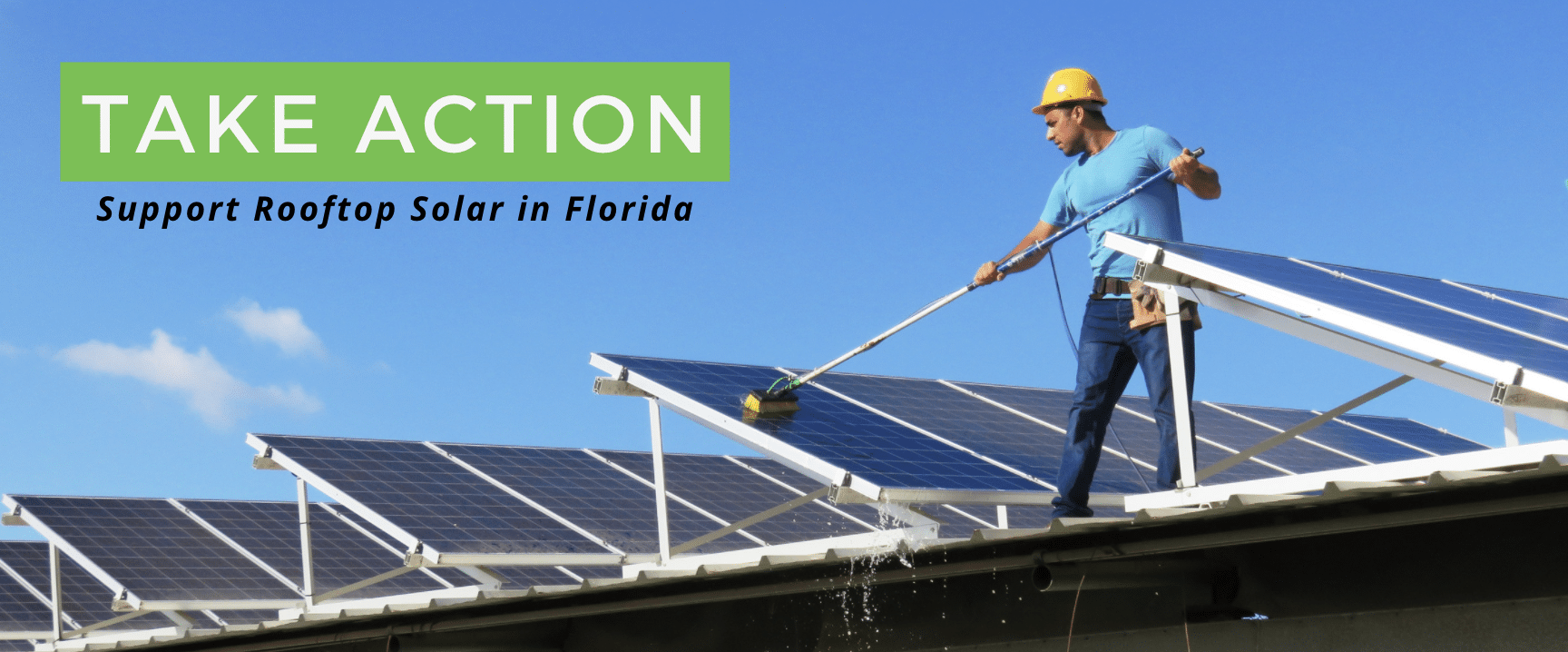The wolf is always at the door for rooftop solar, this time FPL aims to crush solar choice, and solar jobs once and for all.
George Cavros | January 10, 2022 | Florida, Solar, UtilitiesUpdate: Senate Bill 1024 was passed by the Florida Senate Regulated Industries Committee during a hearing on January 11, and the Community Affairs Committee on February 8, and has one more committee stop in the Senate on March 1. Its companion bill, House Bill 741, has passed all three of its committee stops. Recent amendments to HB 741 must be reconciled with SB 1024 before the bills head to floor votes. HB 741 was passed by both chambers and will be presented to Governor DeSantis to sign, veto, or allow it to become law by not taking action.
Final Update: On April 27, Governor DeSantis vetoed the anti-solar bill HB 741. This is great news given that the bill would have denied energy freedom to some 8 million customers, decimated thousands of jobs and driven bills up for all Floridians.
The monopoly utilities are at it again.
Florida Power and Light (FPL), the state’s largest power company, has written an anti-rooftop solar bill and is pushing it at the Florida Legislature. If passed, the bill will decimate rooftop solar adoption in Florida and take a sledgehammer to solar choice for customers, jobs, and economic development. Florida’s legislative session begins January 11 and ends March 11, and this regressive bill is expected to come up for a vote early in the session. We at the Southern Alliance for Clean Energy have condemned this utility-led assault on solar choice in the Florida Legislature.
The bill, respectively Senate Bill 1024 and House Bill 741, aims to gut the state’s net metering policy – which ensures customers receive fair credit for the electricity their solar systems produce. Net metering allows electricity customers to generate power themselves with rooftop solar and offset it against the electricity they buy from their utility. They receive a credit for any excess solar power they don’t use, which is returned to the grid.

Take Action to Support Rooftop Solar in Florida
Rooftop Solar Lowers Costs for All Customers
Rooftop solar customers provide important savings to the utility by generating clean power to the grid that serves nearby customers – power the utility doesn’t have to generate itself. Moreover, solar homeowners pay the upfront capital costs of going solar, which saves all customers the expense and risk for generating that power. In this way, rooftop solar provides the same benefits to the utility as making your home more efficient and reducing your energy use. This reduces costs for everyone – an especially important benefit for low-income customers.
Yet under a plain reading of the SB 1024 and HB 741, net metering would be effectively eliminated and, if passed, would permit punitive fees on solar customers. FPL argues that this arrangement would be fairer for non-solar customers who are allegedly subsidizing solar customers – including low-income customers. It should be noted that FPL has a history of using front-line communities and people of color to shield their greedy intentions.
FPL’s Over-Reliance on Fossil Fuel Sends Bills Surging
The irony here is that FPL bills are surging because of its over-reliance on fossil fuel. For instance, it will have passed on $1.1 billion in costs to customer bills in 2021 and 2022 due to spiking fossil gas prices. Now, it aims to put rooftop solar and the benefits it brings to the energy grid out of reach for customers. Meanwhile, FPL continues to make record profits, with profits growing 10% to $836 million in the 3rd quarter of 2021 alone.
Additionally, the Florida Public Service Commission, Florida’s energy regulators, approved an FPL base rate increase settlement agreement last year. It included a “minimum bill” provision that allows FPL to recover $32 million in additional revenue annually from low energy use customers – including solar net-metered customers. FPL stated, in response to a data request, that the provision would better ensure that all customers pay their “fair share” of utility costs. Now, with the ink on the settlement agreement barely dry, FPL is blowing the dog whistle on subsidies again.
Not surprisingly, FPL hasn’t provided data to support its allegations, plus, we’ve seen this unsubstantiated messaging before. In 2016 FPL and other monopoly utilities bankrolled a deceptive anti-solar ballot that was roundly rejected by voters. In 2020, FPL argued at the Florida Public Service Commission that it was losing revenue because of solar customers and asked for changes to its net metering policy – that request was denied. Now FPL is going to the legislature, where it wields significant influence.
Energy Freedom, Jobs, and Economic Development at Stake
Beyond the value to the grid, rooftop solar provides wider economic benefits to the tune of over $18 billion to the state’s economy and supports over 40,000 jobs. Moreover, rooftop solar is supported by 93% of Floridians. Any legislator that supports energy freedom, jobs, and economic development must oppose SB 1024 and HB 741.
Moreover, crippling solar rooftop adoption eliminates a critical tool in reaching renewable energy and sustainability targets and in the transition to a cleaner energy future. A recent analysis by Southern Alliance for Clean Energy found that distributed energy resources (DER), like rooftop solar, can play a critical role in decarbonizing the electricity sector. The rooftop market will become increasingly more critical in reducing carbon emissions as the state runs out of land for large utility-scale projects.
Take Action
If we’re going to live up to the moniker of the Sunshine State, let’s empower Floridians to choose clean, innovative energy technologies that provide benefits to all customers, not undermine those options at the behest of monopoly utilities.
Have your voice heard in this critical battle for Florida’s energy future and contact legislators today! We will keep you updated on solar developments at the legislature.